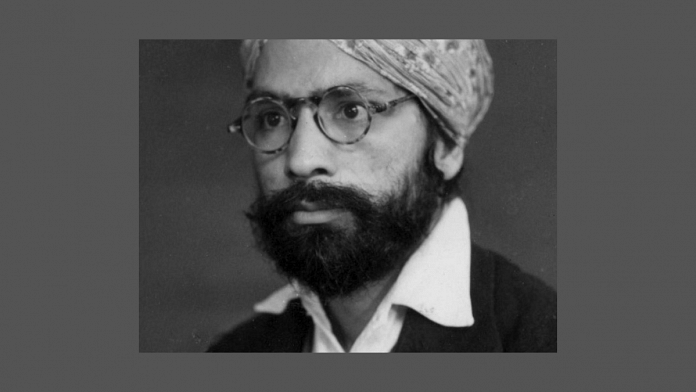On his 17th death anniversary, ThePrint recalls the life of Makhan Singh who lost his limb in an unfortunate accident after representing India at the highest level.
New Delhi: ‘Flying Sikh’ Milkha Singh, the great Indian Olympian, once lost an important race of his life. The winner of that 400m in the 1962 Kolkata National Games? Another Olympian, Makhan Singh.
Gold and silver medallist at the Jakarta Asian Games in 1962, Makhan Singh was the recipient of the Arjuna Award in 1964.
On his 17th death anniversary, ThePrint recalls the life of the Indian speedster who lost his right leg in a tragic accident and lived the rest of his life in penury.
Sporting career
Makhan Singh was born on 1 July 1937 in Bathulla village in Punjab’s Hoshiarpur district.
Singh took to athletics after being recruited in the Indian Army in 1955. His first win in major competitive athletics came in 1959 when he won the bronze medal while participating in the Cuttack National Games.
The following year, at the National Games in Delhi, Singh won a gold medal in the short sprint and a silver medal in the 300m race.
Two years later came the victory that was to define his athletic career. The great ‘flying Sikh’ had already lost an Olympic medal in Rome in 1960. And then at the 1962 Kolkata National Games, Makhan went past in the 400m race.
In one of his interviews later, Milkha went on to say, “If there is one person I feared on the track, it was Makhan. He was a superb athlete, who brought the best in me. I would rate him even higher than Pakistan’s Abdul Khaliq.”
In the same year, Makhan brought laurels for the country at the Asian Games. He won the gold in the 4x400m relay and a silver in the quarter-mile race.
He went on to participate in the 1964 Tokyo Olympics, where he was part of the Indian men’s 4x100m relay team as well as the 4x400m relay team. He was awarded the Arjuna Award in the same year.
Also read: Remembering Chuni Goswami, the football legend who also played Ranji Trophy
Troubled times
Life, however, wasn’t easy for the Olympian. Even after representing the country at the world’s biggest sporting arena, Singh had to struggle to make ends meet.
After his retirement from the Army as a Subedar in 1972, Singh started driving trucks to Mumbai, Pune, Nagpur and several other places for pick-up and delivery of goods.
In his book A Forgotten Hero: The King of the Racing Paths, author Prateek Sharma wrote that when Singh was asked by his colleagues about why he was driving trucks even after representing the country at the highest level, he said, “If you have to praise yourself about your success, then that success is not worth it. If your success is recognised by the world, then that is a real achievement.”
In 1974, Singh married 21-year old Salinder Kaur and had three children — Inderpal Singh, Gurwinder Singh and Parminder Singh — with her.
While the younger Inderpal and Gurwinder passed away following bouts of illness and lack of medical support in 2013, the eldest Parminder was physically challenged.
This was almost two decades after the ace runner met with an unfortunate accident in 1990, wounding his right leg. He didn’t take the injury seriously and was later diagnosed with gangrene.
Singh was forced to sever the limb. To make matters worse, no financial aid was provided by the government.
A proud man, Singh declined to take money from his sister Surjeet Kaur, but, ultimately, had to borrow from a village neighbour to get an artificial leg, Sharma wrote in his book.
As it became impossible for him to drive a truck, Singh opened a stationery shop in the village of Chabbewal and used to cycle 3 km to reach it.
In 2002, at the age of 65, Singh died of a cardiac arrest in Chabbewal.
His family continued to live in poverty.
Sharma wrote, “Makhan Singh had died a painful death and his family had reached such a poverty-stricken state that they were thinking of selling his award as well as his sports blazer, just to make their ends meets.”
Small victories
Following the release of film Rakeysh Omprakash Mehra’s Bhaag Milkha Bhaag in 2013, which was based on the life of Milkha Singh, Makhan resurfaced in the public eye, 11 years after his death.
Days after the release of the film, then Leader of the Opposition Sushma Swaraj raised the plight of his family in the Parliament.
Following her intervention, the Union petroleum and sports ministries extended assistance to his family, amounting to Rs 5 lakh and Rs 2 lakh, respectively.
His son, Parminder was also appointed as a peon at the District Sainik Welfare Office at a salary of Rs 7,000.



